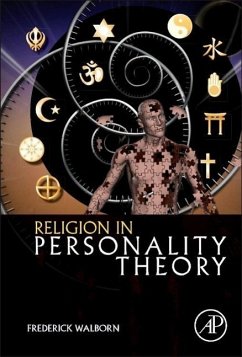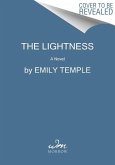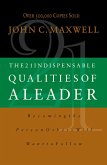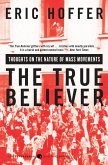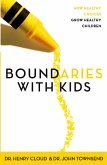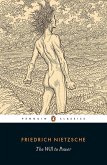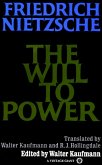Religion in Personality Theory makes clear the link between theory and research and personality and religion. Presently, most personality texts have a limited discussion of religion and reference few theorists other than Freud and Maslow in relation to the subject. This book reviews the theory and the empirical literature on the writings of 14 theorists. Every chapter concludes with a summation of the current research on the theorist's proposals.
Reviews:
"Frederick Walborn has written an excellent text that explores the degree to which classical personality theorists were personally influenced by and focused upon religion in developing their personality theories. Each theorist is presented in sufficient detail so that their personal views of religion are seen to influence the theories they developed. In addition, the current status of the empirical evidence in the psychology of religion is explored in the context of the theorist and theory to which the datais most relevant. Current and up to date, this text is appropriate for either a course in Personality or as an introduction to the Psychology of Religion. The author's own comprehensive theory of religion and spirituality creatively integrates the positive contributions of the classical personality theorist to the contemporary psychology of religion."
-Ralph W. Hood Jr., Professor of Psychology, University of Tennessee at Chattanooga
"In this interesting and accessible book, Frederick Walborn thoughtfully probes the place of religion and spirituality in the writings of a broad range of classical psychological thinkers and offers an insightful critique of current empirical research on the complex relation of religion and spirituality to individual well-being."
-Michele Dillon, Ph.D., Professor and Chair, Department of Sociology, University of New Hampshire, Durham, New Hampshire
Hinweis: Dieser Artikel kann nur an eine deutsche Lieferadresse ausgeliefert werden.
Reviews:
"Frederick Walborn has written an excellent text that explores the degree to which classical personality theorists were personally influenced by and focused upon religion in developing their personality theories. Each theorist is presented in sufficient detail so that their personal views of religion are seen to influence the theories they developed. In addition, the current status of the empirical evidence in the psychology of religion is explored in the context of the theorist and theory to which the datais most relevant. Current and up to date, this text is appropriate for either a course in Personality or as an introduction to the Psychology of Religion. The author's own comprehensive theory of religion and spirituality creatively integrates the positive contributions of the classical personality theorist to the contemporary psychology of religion."
-Ralph W. Hood Jr., Professor of Psychology, University of Tennessee at Chattanooga
"In this interesting and accessible book, Frederick Walborn thoughtfully probes the place of religion and spirituality in the writings of a broad range of classical psychological thinkers and offers an insightful critique of current empirical research on the complex relation of religion and spirituality to individual well-being."
-Michele Dillon, Ph.D., Professor and Chair, Department of Sociology, University of New Hampshire, Durham, New Hampshire
Hinweis: Dieser Artikel kann nur an eine deutsche Lieferadresse ausgeliefert werden.
"...Walborn's integrative theory has the great virtue of accenting, and suggesting ways of accounting for, the considerable diversity in the realm of religious faith, especially the less admirable forms." --PsycCRITIQUES, 2014
"Frederick Walborn has written an excellent text that explores the degree to which classical personality theorists were personally influenced by and focused upon religion in developing their personality theories. Each theorist is presented in sufficient detail so that their personal views of religion are seen to influence the theories they developed. In addition, the current status of the empirical evidence in the psychology of religion is explored in the context of the theorist and theory to which the data is most relevant. Current and up to date, this text is appropriate for either a course in Personality or as an introduction to the Psychology of Religion. The author's own comprehensive theory of religion and spirituality creatively integrates the positive contributions of the classical personality theorist to the contemporary psychology of religion." --Ralph W. Hood Jr., Professor of Psychology, University of Tennessee at Chattanooga
"In this interesting and accessible book, Frederick Walborn thoughtfully probes the place of religion and spirituality in the writings of a broad range of classical psychological thinkers and offers an insightful critique of current empirical research on the complex relation of religion and spirituality to individual well-being." --Michele Dillon, Ph.D., Professor and Chair, Department of Sociology, University of New Hampshire, Durham, New Hampshire
"This book is exceptionally well balanced, carefully crafted so that all ideas are clearly and even-handedly on the table to be freely examined by all. Walborn is honest, refreshingly has no between-the-lines agenda on a topic that has great bias potential, and discusses in straight-talk those issues about religiousness that are on students' minds but not typically discussed by psychologists. The book covers the ground on what personality theories say about religion. Each chapter presents the crux of the understanding of religiousness of a major personality theorist (including the span from behaviorist, cognitive, depth and psychodynamic, and humanistic/fulfillment approaches - the TOC constitutes a complete list). Each chapter includes presentation of the recent research that stems from that approach. Walborn also presents an "integrative/comprehensive" theory of spirituality and religion that pulls pieces of the disparate approaches together in application of the ideas where they are most relevant across the lifespan. The book is not a mere documentary on theories; it is instead an introduction to them with the addition of a research message rooted in the latest empirical literature. How to better let students see how research derives from theory, and that theory is forward moving and modified by the evidence? This is an ideal companion to any of the standard texts for a psychology of religion course with an accent on theory." --Raymond F. Paloutzian, Ph.D., Professor Emeritus of Psychology, Westmont College, Santa Barbara, CA; Editor, The International Journal for the Psychology of Religion; Editor with C.L. Park, Handbook of the Psychology of Religion and Spirituality, 2nd Ed.; Author of Invitation to the Psychology of Religion, 3nd. Ed. forthcoming
"Frederick Walborn has written an excellent text that explores the degree to which classical personality theorists were personally influenced by and focused upon religion in developing their personality theories. Each theorist is presented in sufficient detail so that their personal views of religion are seen to influence the theories they developed. In addition, the current status of the empirical evidence in the psychology of religion is explored in the context of the theorist and theory to which the data is most relevant. Current and up to date, this text is appropriate for either a course in Personality or as an introduction to the Psychology of Religion. The author's own comprehensive theory of religion and spirituality creatively integrates the positive contributions of the classical personality theorist to the contemporary psychology of religion." --Ralph W. Hood Jr., Professor of Psychology, University of Tennessee at Chattanooga
"In this interesting and accessible book, Frederick Walborn thoughtfully probes the place of religion and spirituality in the writings of a broad range of classical psychological thinkers and offers an insightful critique of current empirical research on the complex relation of religion and spirituality to individual well-being." --Michele Dillon, Ph.D., Professor and Chair, Department of Sociology, University of New Hampshire, Durham, New Hampshire
"This book is exceptionally well balanced, carefully crafted so that all ideas are clearly and even-handedly on the table to be freely examined by all. Walborn is honest, refreshingly has no between-the-lines agenda on a topic that has great bias potential, and discusses in straight-talk those issues about religiousness that are on students' minds but not typically discussed by psychologists. The book covers the ground on what personality theories say about religion. Each chapter presents the crux of the understanding of religiousness of a major personality theorist (including the span from behaviorist, cognitive, depth and psychodynamic, and humanistic/fulfillment approaches - the TOC constitutes a complete list). Each chapter includes presentation of the recent research that stems from that approach. Walborn also presents an "integrative/comprehensive" theory of spirituality and religion that pulls pieces of the disparate approaches together in application of the ideas where they are most relevant across the lifespan. The book is not a mere documentary on theories; it is instead an introduction to them with the addition of a research message rooted in the latest empirical literature. How to better let students see how research derives from theory, and that theory is forward moving and modified by the evidence? This is an ideal companion to any of the standard texts for a psychology of religion course with an accent on theory." --Raymond F. Paloutzian, Ph.D., Professor Emeritus of Psychology, Westmont College, Santa Barbara, CA; Editor, The International Journal for the Psychology of Religion; Editor with C.L. Park, Handbook of the Psychology of Religion and Spirituality, 2nd Ed.; Author of Invitation to the Psychology of Religion, 3nd. Ed. forthcoming

